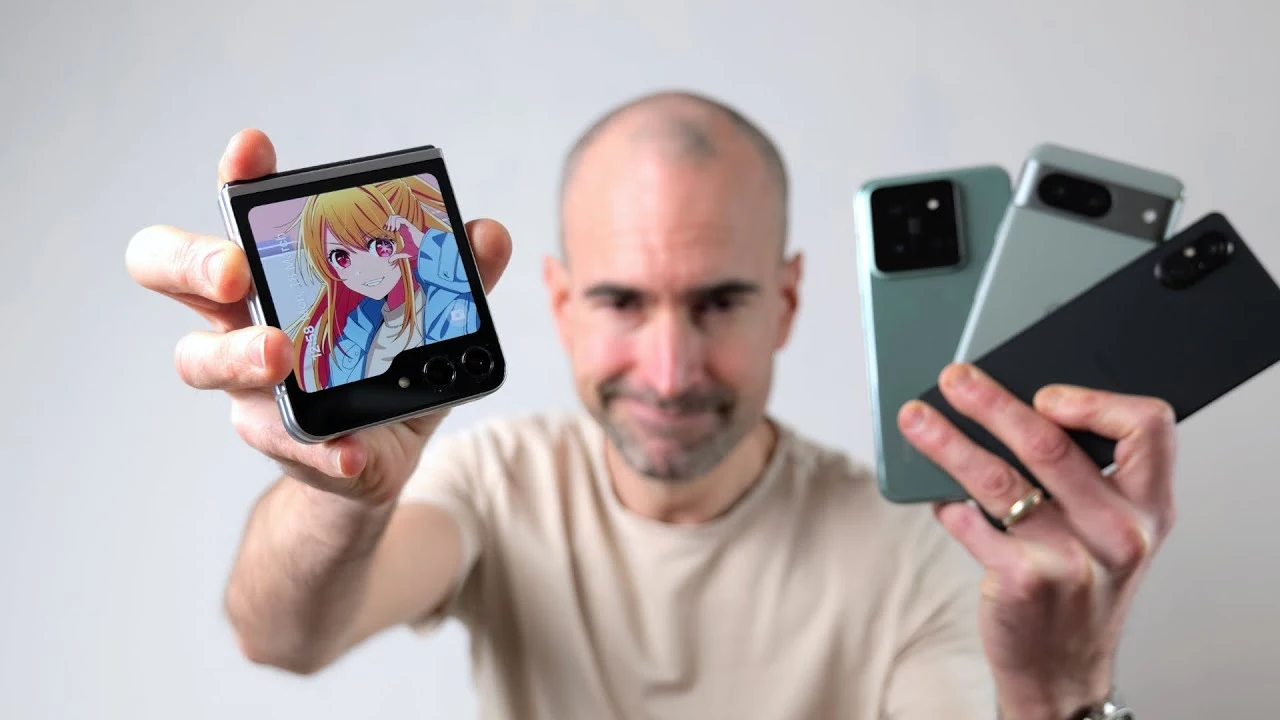- 0:00 - Rambly bit
- 0:45 - Samsung Galaxy S24
- 2:20 - Xiaomi 14
- 4:05 - Google Pixel 8
- 5:17 - Google Pixel 7a
- 6:43 - Asus Zenfone 10
- 8:14 - Motorola Edge 30 Neo
- 9:09 - Apple iPhone 15/13 Mini
- 11:02 - Apple iPhone SE 3 (NOPE!)
- 11:45 - Sony Xperia 5 V
- 13:27 - Motorola Moto Razr 40 Ultra
- 15:08 - Oppo Find N2 Flip
- 15:31 - Samsung Galaxy Z Flip 5



Stop comparing it by screen size. Bezels are waaay smaller now than they used to be.
I see a lot of people saying “small?! How could this be small, the screen is X inches! My phone from 2014 was only Y inches!” while completely ignoring that slim bezels mean the phone is about the same size.
Comparing the S24 to the S5 from a decade ago, the S24 has a frontal area of 10,437mm², and the S5 is 10,366mm². The newer one is marginally smaller.
You wouldn’t think that comparing screen sizes, though. You’d look at the screen size and say “Omg it’s over an inch larger, this phone must be MASSIVE!”
Granted, if you go back to like the iPhone 4 era and earlier, phones genuinely were smaller. But phone sizes haven’t really changed much at all in the past decade, yet people act like they get larger every generation.
The small phone debate is not just about the overall physical size, it’s also about how reachable UI elements are when using a phone with one hand.
For one handed operation, screen size does matter regardless of bezel size. The larger the screen becomes, the harder it is for the thumb to reach the top of the screen because the top gets ever further away from the thumb.